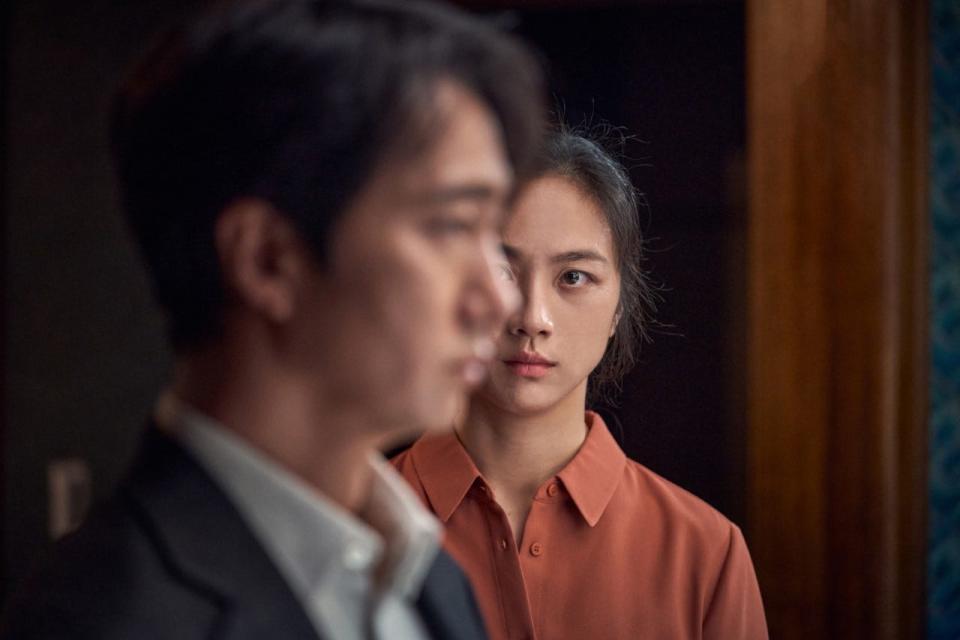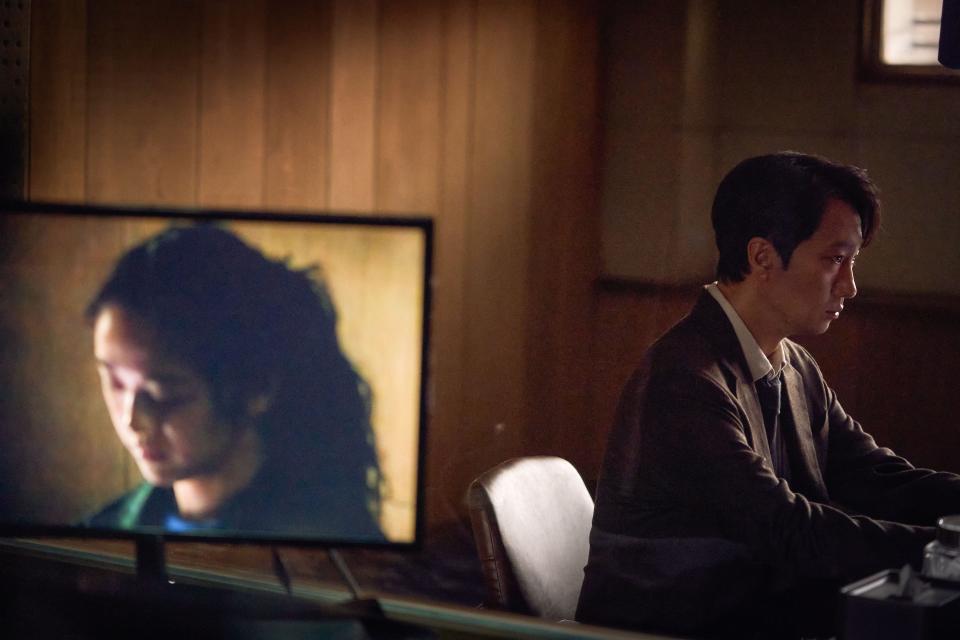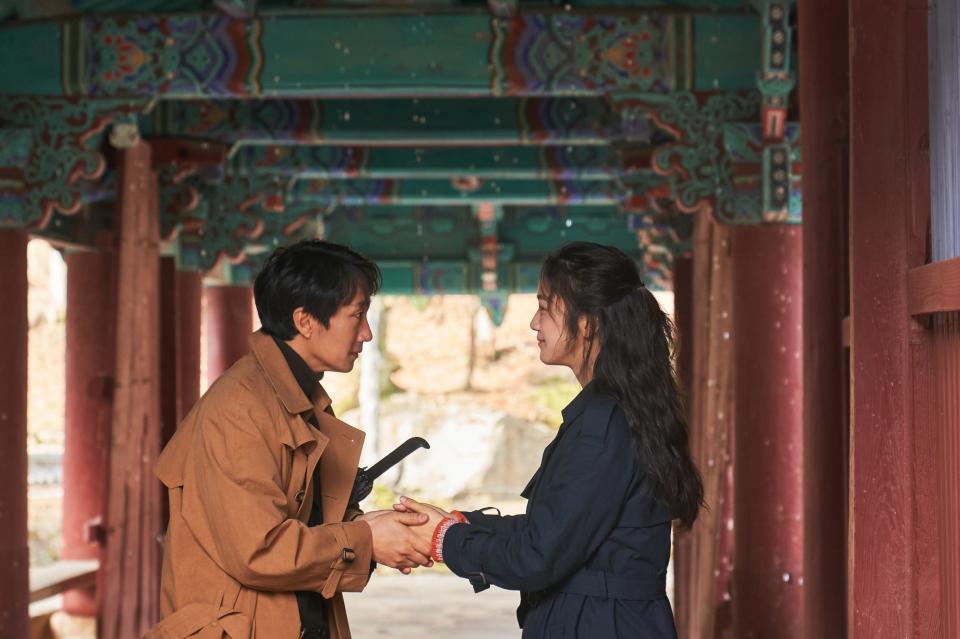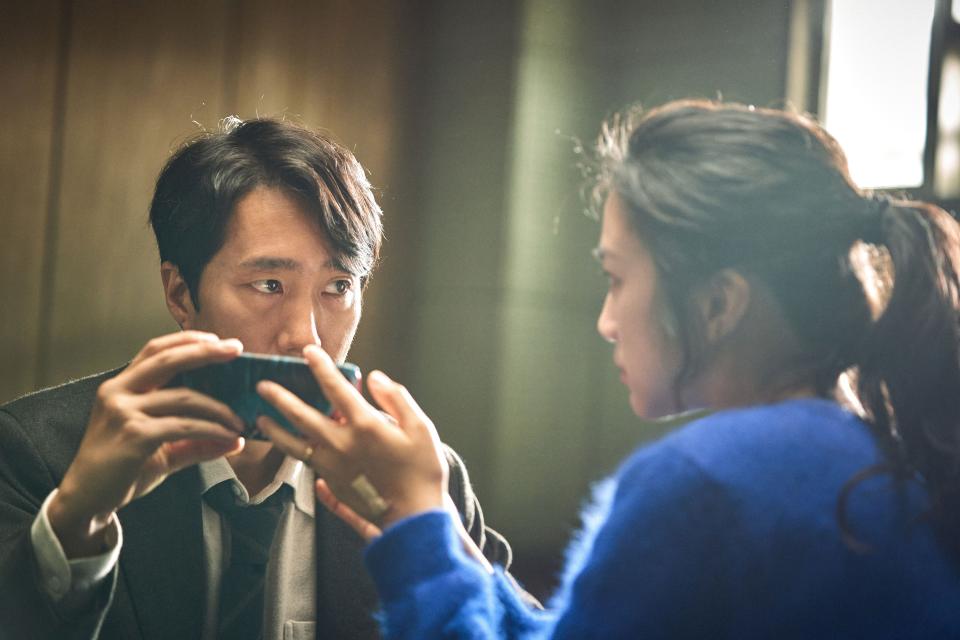Movie review: 'Decision to Leave' is a 'seductive' neo-noir love story
- Oops!Something went wrong.Please try again later.
- Oops!Something went wrong.Please try again later.
- Oops!Something went wrong.Please try again later.
- Oops!Something went wrong.Please try again later.
Comparing Park Chan-wook to Alfred Hitchcock is much the same as contrasting Oasis with The Beatles. It’s imitation, but if the results are pleasurable, if not rewarding, who’s to complain? So it is with Park’s sumptuously adorned “Decision to Leave,” a neo-noir love story so dizzying you’d swear you’re experiencing “Vertigo.”
It’s as if Park is illuminating the parallels: the obsessive detective, the gorgeous femme fatale, the haute couture threads, crashing waves, the acrophobia … I could go on and on. But what’s most Hitchcockian is Park’s mastery over his audience. He knows how to entice and manipulate, pulling you in with seductive visuals and immersing you in a cockeyed romance you know from the beginning isn’t going to end well for either party.

Abetted by cinematographer Kim Ji-yong, Park deposits you inside an intoxicating dreamscape where eroticism and danger lurk around every shadowy corner. It’s sexy, thrilling and not at all averse to occasional accents of gallows humor. It also possesses a pair of combustible leads in Tang Wei and Park Hae-il, who positively smolder as the forbidden lovers caught in a web of murder, mystery and deceit. In Park’s world, nothing can be trusted, not even our own loyalties to enigmatic characters who seem to change like the weather.
Concert review: Smashing Pumpkins go wild at TD Garden in Boston
Most intriguing is Tang’s Seo-rae, a young Chinese refugee, who, by a stroke of great fortune, wins the heart of a much-older immigration official eager to bestow citizenship papers along with a wedding ring. It’s that sugar daddy, who, in the film’s hypnotic opening, is found very mangled, and very dead, at the foot of a towering hoodoo. Was it a case of an experienced climber taking a false step? Or, might it be something more nefarious?

That’s for Busan’s youngest and most respected homicide detective to determine. But is Park Hae-Li’s Hae-joon up to the task, given his chronic insomnia? His eyes may be bleary, but his other senses remain keen. And they are pointing toward Seo-rae, an elder-care nurse bearing a dubious past, along with a severe lack of empathy concerning her husband’s recent demise. “Living old people come before dead husbands,” she proclaims matter-of-factly under Hae-joon’s questioning.
Yet, it’s not her mounting culpability that catches the sleepless detective’s weary peepers while surveilling her around the clock. It’s her remarkable, restrained beauty. He’s whipped, just like Jimmy Stewart was infatuated by Kim Novak in “Vertigo.” Now it’s personal, and wholly unethical. Bad for him, but fun to witness, as Hae-joon falls prey to a vortex of lust and desire.
'Tour-de-force': Cate Blanchett faces the music as a disgraced conductor in 'Tár'
What ensues is standard fare for any fan of noir. But Park and his co-writer Chung Seo-kyung are adept at creating a series of diversions, some unrelated to Seo-rae, that consistently keep you on your toes. And that’s a good thing because the story they’ve fashioned is intricate, if not teetering on convoluted. Lose concentration and you risk being left in the wake of a fast-paced procedural that’s a magnetic marriage of style and convention.

And to double the pleasure, Park breaks the film into two parts: the first half in Busan, and the second in Ipo, where a “shattered” Hae-joon seeks to be transferred after reluctantly acknowledging his feelings have hindered his dedication to duty. Ipo is also where his dowdy, “weekend” wife, Jung-an (Lee Jung-hyun), has been residing unaware of her hubby’s impure thoughts about Seo-rae. But now that the sort-of-happy couple is together full time, things will be better, right?
Wrong! That goes double for the story, which begins venturing too deeply into contrivance and implausibility. But it does offer yet another potential murder for Hae-joon to solve. And guess who’s the chief suspect? What are the odds? You go with it just the same. That’s when the film’s electrifying visuals become integral, as mood invariably trumps storytelling. Only during the melancholy-laced denouement does “License to Leave” fully resuscitate.
'Charming and profound': In 'Young Plato,' an Elvis-loving headmaster changes lives
Its impact is significant, but it fails to match the raw heat of Park’s last film, 2016’s sexually charged “The Handmaiden.” Still, don’t let that sway you. Just because this offering is subpar Park, it’s still superior to most Hollywood thrillers. And that’s reason enough to submit and allow your senses to fully take “Leave.”

'Decision to Leave'
Rating: Not rated
Director: Park Chan-wook
Writers: Park Chan-wook and Chung Seo-kyung
Cast: Tang Wei, Park Hae-il and Lee Jung-hyun
Runtime: 138 minutes
Language: In Korean with English subtitles
Thanks to our subscribers, who help make this coverage possible. Please consider supporting quality local journalism with a Patriot Ledger subscription. Here is our latest offer.
This article originally appeared on The Patriot Ledger: Park Chan-wook's 'Decision to Leave' 'seductive' neo-noir love story

